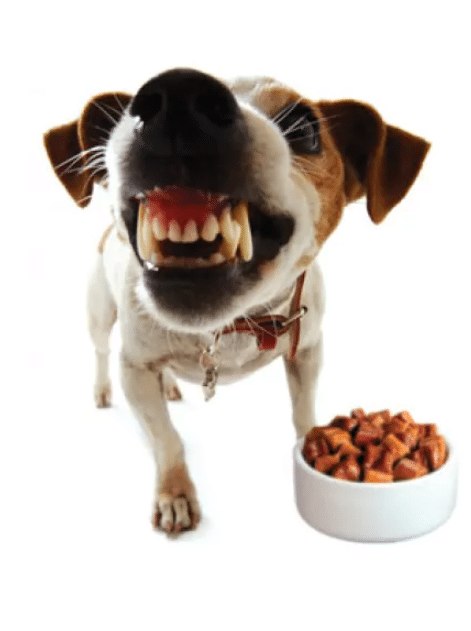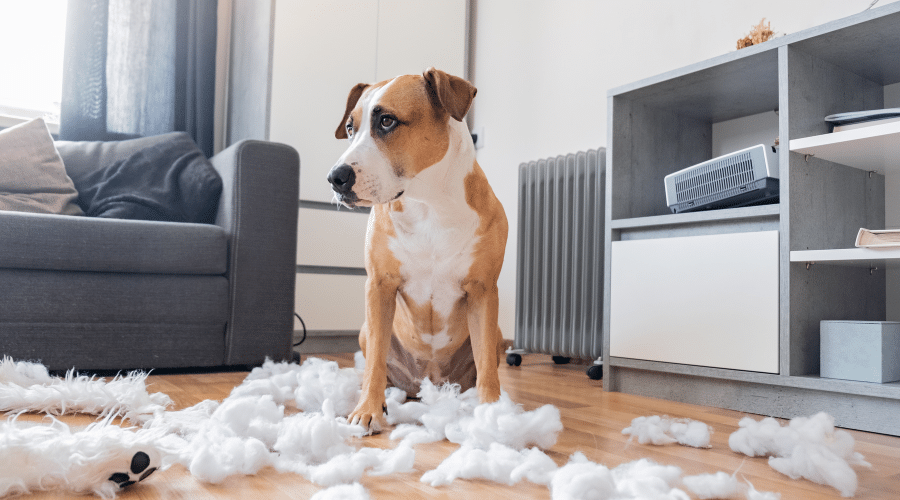
info@janfennellthedoglistener.com
Home / “Resource Guarding”-by Jan Fennell

The Nonsense of ‘Resource Guarding’.
Just as with all aspects of dog behaviour, there are ‘trainers’ the world over who are making money, based on their own limited understanding of the dog’s world, giving classes and courses, based on specific but irrelevant, individual ‘behavioural problems’.
It seems there are myriad courses out there (designed to sell a course, or product, to unknowing dog owners) for “reactive dogs”, “aggressive dogs”, “dogs with “high prey drive” etc.
The list just goes on, but they are all courses designed to give huge importance to minor issues, issues that do not have a significant influence on undesirable behaviour, because they are treating, or attempting to treat, a specific symptom.
The worst aspect of such training is that many of the actions that owners are told to implement do not really address the cause of the behavioural problem, they can actually make the whole situation unnecessarily worse!
Let me start with the specific behaviour labelled as “Resource Guarding”, this term is used to describe a dog that either appears to protect food or a toy by blocking people from getting to the food or item.
Sadly, when the perception of the expert is incorrect the dog will suffer. A typical example is when a dog fails to eat its food which is left on the ground giving the dog free access to it, whenever it chooses. Of course, the owner usually becomes very distressed, worrying that their dog will starve itself, however, I must assure everyone that no dog is really that stupid and will never starve itself, so we have to ask ourselves, what is really going on here?
This is so simple to understand and resolve, once it has been established that there is no medical reason for the dog’s behaviour, such as problems in the mouth or throat.
This behaviour is simply part of one of the four main areas of survival (The basis of my method, ‘Amichien Bonding’). The dog needs to find a way to check that the owner is actually up to the job of being the lead decision maker, able to protect and provide for the family, and on many occasions the dog will do this by holding the ‘power of the food’ or ‘control of an item’.
If an owner becomes distressed and concerned when their dog leaves its food, the dog will pick up on this emotional change immediately, and this will trigger their alarm bells that all is not well, or safe, in their relationship and this in turn makes the dog to react even more dramatically and their behaviour escalates, and so the downward spiral begins.
The simple and effective way to resolve the problem and bring peace and harmony to both dog and owner, is for the owner to remove the food bowl when the dog stops eating, no matter how little has been consumed by the dog.
There must be no attempt to feed the dog again until the next scheduled feed time and this should be done without emotion, words, or even, eye contact with the dog. It will never take long for the dog to stop the behaviour and start eating again, when offered its meal.
This non-emotional approach when dealing with your dog applies to so many behavioural issues, excessive barking, over reaction, aggression etc. The list is endless.
The thing that all pet owners need to understand is that they have to respect their pet’s understanding of the world, because our pets do not see our world in the same way that we do. If we can all appreciate, and accept that premise, then we can start to successfully address all of these individually labelled “behaviours” (whatever the current, fashionable term for each of them is).
Once we actually understand what our dogs need from us, we can address the underlying cause of these individual issues, not just the symptom.
I mention this now because, following several messages from a regular contributor to my Facebook page, who was experiencing problems with her dog not eating. She followed my advice, and this was the result.
“Well there you go Jan! The very next day I put her food down morning and night and BOTH times she walked away so I picked it up and put it away with no fuss. The next morning she acted hungry and ATE THE LOT. She has not walked away since. I need to trust the process that I know so well..”
There is always an obvious and easy solution, once we look in the right direction.
Sincerely,
Jan Fennel



info@janfennellthedoglistener.com
© 2022 Jan Fennell The Dog Listener.
| Cookie | Duration | Description |
|---|---|---|
| cookielawinfo-checkbox-analytics | 11 months | This cookie is set by GDPR Cookie Consent plugin. The cookie is used to store the user consent for the cookies in the category "Analytics". |
| cookielawinfo-checkbox-functional | 11 months | The cookie is set by GDPR cookie consent to record the user consent for the cookies in the category "Functional". |
| cookielawinfo-checkbox-necessary | 11 months | This cookie is set by GDPR Cookie Consent plugin. The cookies is used to store the user consent for the cookies in the category "Necessary". |
| cookielawinfo-checkbox-others | 11 months | This cookie is set by GDPR Cookie Consent plugin. The cookie is used to store the user consent for the cookies in the category "Other. |
| cookielawinfo-checkbox-performance | 11 months | This cookie is set by GDPR Cookie Consent plugin. The cookie is used to store the user consent for the cookies in the category "Performance". |
| viewed_cookie_policy | 11 months | The cookie is set by the GDPR Cookie Consent plugin and is used to store whether or not user has consented to the use of cookies. It does not store any personal data. |